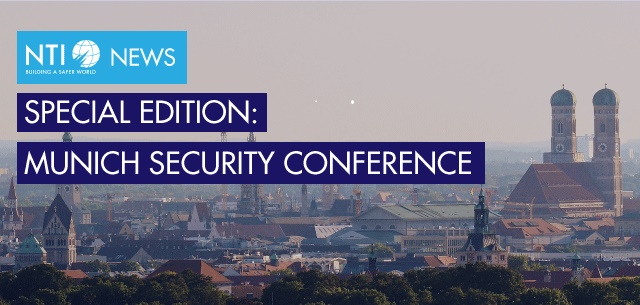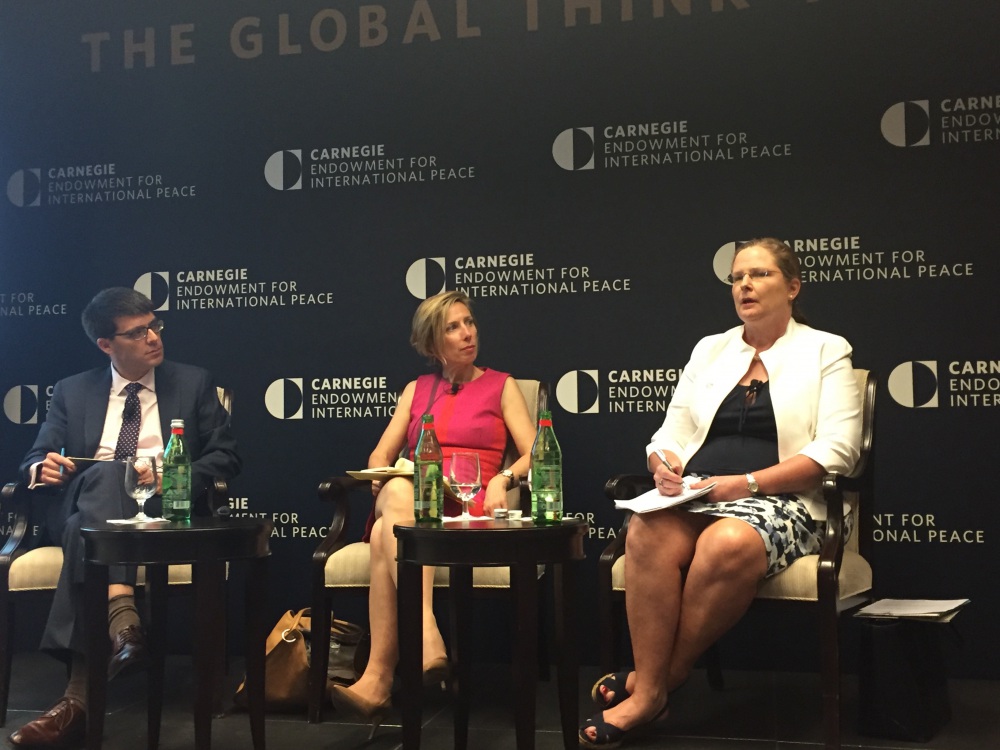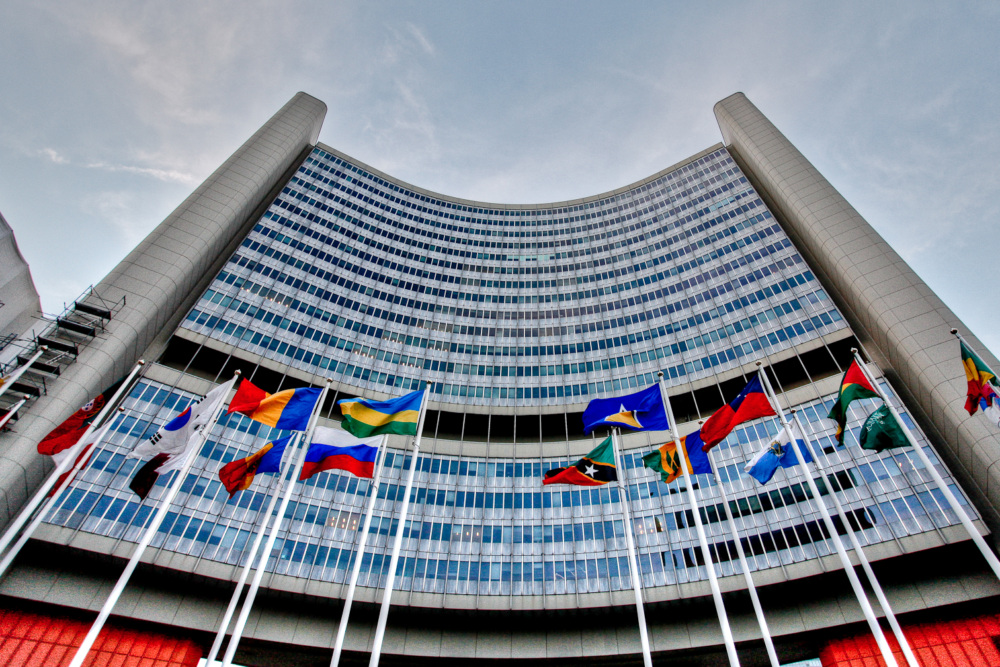
Meaghan Webster
Communications Manager
Atomic Pulse
NTI is on the ground for the 2018 Munich Security Conference (MSC) where Co-Chairs Ernest Moniz and Sam Nunn are releasing Building a Safe, Secure, and Credible NATO Nuclear Posture, a new report urging U.S. and NATO leaders to re-evaluate forward-deployed nuclear weapons in Europe. NTI also is announcing an initiative, the Euro-Atlantic Security Leadership Group (EASLG). Members include former and current high-level officials and experts from Euro-Atlantic states and the European Union working to reduce threats and develop steps to improve security across the region. On Saturday, Moniz and NTI Vice President for Global Biological Policy and Programs Elizabeth Cameron will host a side event to the MSC focused on biosecurity. For details on these activities and more, continue reading.
New NTI Report Urges U.S. and NATO Leaders to Re-evaluate Forward-Deployed Nuclear Weapons in Europe
A new report released by NTI at the Munich Security Conference urges U.S. and NATO leaders to re-evaluate whether storing nuclear weapons at multiple sites across multiple European countries makes sense in light of today’s threats and escalating costs—and, importantly, whether the weapons are still required elements of NATO defense policy. “It is past time to revisit whether… forward-based weapons are essential for military deterrence and political reassurance,” NTI Co-Chairs Ernest Moniz and Sam Nunn write in the foreword to Building a Safe, Secure, and Credible NATO Nuclear Posture. As Julian Borger of The Guardian writes: “The U.S. is to spend billions of dollars
upgrading 150 nuclear bombs positioned in Europe, although the weapons may be useless as a deterrent and a potentially
catastrophic security liability, according to a new report by arms experts.” Download the full report here.
Euro-Atlantic Security Leadership
Group Offers Recommendations to Reduce Global Nuclear Risks
The Euro-Atlantic
Security Leadership Group (EASLG) is an independent and informal
initiative, with participants from the United States, Canada, Russia, and 15 European countries who reflect the diversity of the Euro-Atlantic
region. Led by Des Browne,
Wolfgang Ischinger, Igor Ivanov,
and Sam Nunn,
and meeting Saturday at the Munich Security Conference, the EASLG has been working
for three years to test ideas and develop proposals for improving nuclear and
military security between the U.S. and Europe.
In advance of the MSC, Browne, Ischinger, Ivanov and Nunn
published a new
op-ed calling on governments to work together to mitigate these risks. The EASLG also has issued two new statements: one
encouraging dialogue among governments to reduce nuclear risks and another encouraging
dialogue to address cyber threats to nuclear facilities, and command and
control systems. Learn more about the EASLG here.
NTI Hosts MSC Side
Event on Bioterrorism, Health Security, and Technology Advances
On Saturday, NTI will host a side
event in Munich, “Promise & Peril: Bioterrorism, Health Security, and Technology
Advances.” The event will feature a panel moderated by NTI Co-Chair and CEO
Ernest Moniz, and keynote speakers include Ellen Sirleaf Johnson, former
President of Liberia, and Ank Bijleveld, Minister of Defence for the
Netherlands. Click
here for more details.
Other Munich Security
Conference News
News from our Global Leadership Networks
In advance of the Munich Security Conference,
the European Leadership Network released a new report, Envisioning a Russia-NATO Conflict: Implications for Deterrence
Stability. Download
it here.
Sign up for our newsletter to get the latest on nuclear and biological threats.
Moral philosopher and Oxford research fellow Toby Ord, author of The Precipice: Existential Risk and the Future of Humanity, addressed this lack of investment at a recent NTI seminar hosted by NTI Co-Chair and CEO Ernest J. Moniz. In his opening statement
NTI’s Laura Holgate on Gender Disparity in Disarmament Diplomacy
Governments should use the 2024 International Conference on Nuclear Security (ICONS) to reaffirm their commitment to preventing nuclear catastrophe.



